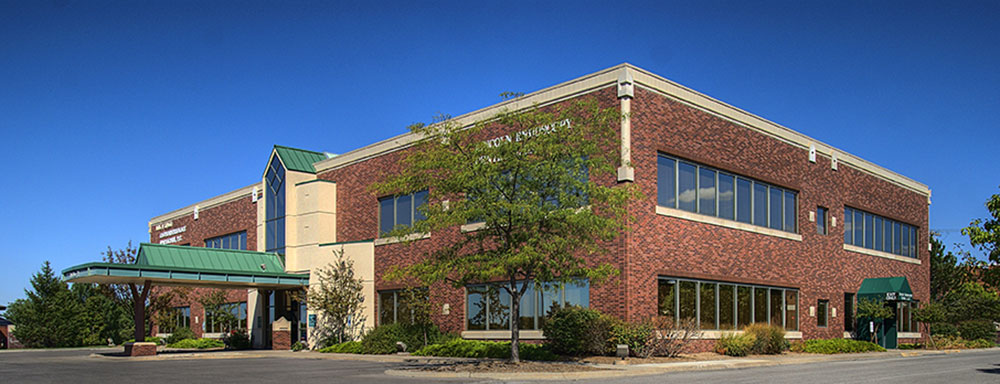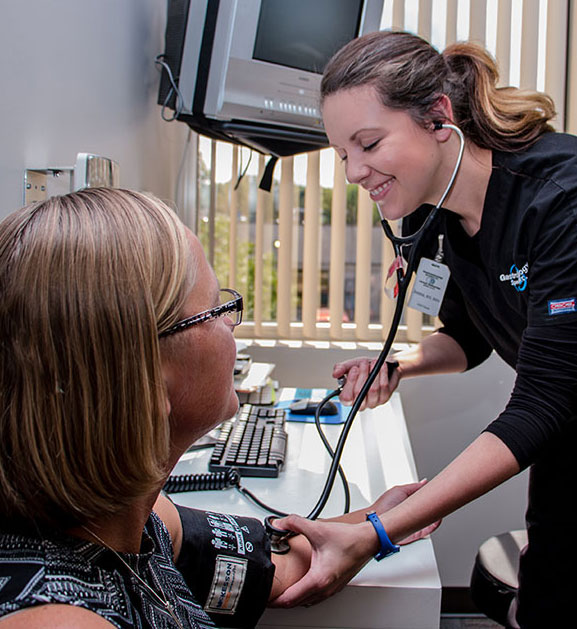Irritable bowel syndrome (IBS) is a common disorder of the intestines that leads to crampy pain, gassiness, bloating and changes in bowel habits. Some people with IBS have constipation (difficult or infrequent bowel movements), others have diarrhea (frequent loose stools, often with an urgent need to move the bowels) and some people experience both. Sometimes the person with IBS has a crampy urge to move the bowels but cannot do so.
Causes of IBS
The colon, which is about six feet long, connects the small intestine with the rectum and anus. The major function of the colon is to absorb water and salts from digestive products that enter from the small intestine. Two quarts of liquid matter enter the colon from the small intestine each day. This material may remain there for several days until most of the fluid and salts are absorbed into the body. The stool then passes through the colon by a pattern of movements to the left side of the colon, where it is stored until a bowel movement occurs.
Colon motility (contraction of intestinal muscles and movement of its contents) is controlled by nerves and hormones and by electrical activity in the colon muscle. The electrical activity serves as a “pacemaker” similar to the mechanism that controls heart function.
Movements of the colon propel the contents slowly back and forth, but mainly toward the rectum. A few times each day, strong muscle contractions move down the colon pushing fecal material ahead of them. Some of these strong contractions result in a bowel movement.
Researchers have found that the colon muscle of a person with IBS begins to spasm after only mild stimulation. There are two “sets” of muscles in the colon, longitudinal and circular, and the one that spasms with more force leads to the symptom of either diarrhea or constipation. The person with IBS seems to have a colon that is more sensitive and reactive than usual, so it responds strongly to stimuli that would not bother most people.
Because doctors have been unable to find an organic cause, IBS often has been thought to be caused by emotional conflict or stress. While stress may worsen IBS symptoms, research suggests that other factors also are important.
IBS Triggers
- Ordinary events such as eating and distention from gas or other material in the colon can cause an overreaction in the person with IBS.
- Certain medicines and foods may trigger spasms in some people. Sometimes the spasm delays the passage of stool, leading to constipation.
- Chocolate milk products or large amounts of alcohol are frequent offenders and can trigger attacks.
- Caffeine causes loose stools in many people, but it is more likely to affect those with IBS.
- Researchers also have found that women with IBS may have more symptoms during their menstrual periods, suggesting that reproductive hormones can increase IBS symptoms.
IBS Basics
Irritable bowel syndrome (IBS) is a common disorder of the intestines that may lead to crampy pain, gassiness, bloating and changes in bowel habits.
IBS does not cause permanent harm to the intestines and does not lead to a serious disease such as cancer. For many people, eating a proper diet lessens IBS symptoms.
Symptoms
It is important to realize that normal bowel function varies from person to person. Normal bowel movements range from as many as three stools a day to as few as three a week. A normal movement is one that is formed but not hard, contains no blood, and is passed without cramps or pain.
People with IBS usually have crampy abdominal pain with painful constipation or diarrhea. In some people, constipation and diarrhea alternate. Sometimes people with IBS pass mucus with their bowel movements. Bleeding, fever, weight loss and persistent severe pain are not symptoms of IBS, and may indicate other problems.
Diagnosing IBS
IBS usually is diagnosed after doctors exclude more serious organic diseases. The doctor will take a complete medical history that includes a careful description of symptoms. A physical examination and laboratory test will be done. A stool sample will be tested for evidence of bleeding. The doctor also may do diagnostic procedures such as x-rays or colonoscopy (viewing the colon through a flexible tube inserted through the anus) to find out if there is organic disease. To learn more about colonoscopy, read the AGA Institute brochure on that topic in your gastroenterologist’s office or visit www.gastro.org/patient.
Is IBS Linked to More Serious Problems?
IBS does not lead to any more serious organic diseases such as cancer or inflammatory bowel disease (ulcerative colitis or Crohn’s disease). Some patients have a more severe form of IBS, and the fear of pain and diarrhea may cause them to withdraw from normal activities. In such cases, doctors may recommend behavioral-health counseling.
Treatment
Start with a Good Diet
For many people, eating a proper diet lessens IBS symptoms. Before changing your diet, it is a good idea to keep a journal noting which foods seem to cause distress and discuss your findings with your doctor. You also may want to consult a registered dietitian, who can help you make changes in your diet. For instance, if dairy products cause your symptoms to flare up, you can try eating less of those foods. Yogurt might be tolerated better because it contains organisms that supply lactase, the enzyme needed to digest lactose, the sugar found in milk products. Because dairy products are an important source of calcium and other nutrients that your body needs, be sure to get adequate nutrients in the foods that you substitute.
Fiber
Insoluble dietary fiber, which helps move bulk through the intestines and promotes bowel movements, may lessen IBS symptoms in many cases. Whole-grain breads, cereals and beans are good sources of fiber for patients with IBS. Consult your doctor before using an over-the-counter fiber supplement. High-fiber diets keep the colon mildly distended, which may help to prevent spasms from developing. Some forms of fiber also keep water in the stools, thereby preventing hard stools that are difficult to pass. Doctors usually recommend that you eat just enough fiber so that you have soft, easily passed, painless bowel movements. High-fiber diets may cause gas and bloating, but within a few weeks, these symptoms often go away as your body adjusts to the diet.
Small Meals
Large meals can cause cramping and diarrhea in people with IBS. Symptoms may be eased if you eat smaller meals more often or just eat smaller portions. This should help, especially if your meals are low in fat and high in carbohydrates such as pasta, rice, whole-grain breads and cereals, fruits, and vegetables.
Role of Medicines in Relieving IBS Symptoms
There is no standard way of treating IBS. Your doctor may prescribe fiber supplements or occasional laxatives if you are constipated. For patients with chronic constipation, prescription drugs such as chloride channel activators, which increase intestinal fluid and motility to help pass stool, may be appropriate. Some doctors may prescribe antispasmodic drugs or tranquilizers, which may relieve symptoms. Antidepressant drugs also are used sometimes in patients who suffer a great deal.
The major concerns with drug therapy for IBS are the potential for drug dependency and the effects the disorder can have on lifestyle. In an effort to control their bowels or reduce stress, some people become dependent on laxatives or tranquilizers. If this happens, doctors try to withdraw the drugs slowly.
Living with IBS
The cause of IBS is not known, and as yet there is no cure. Doctors call it a functional disorder because there is no sign of disease when the colon is examined. IBS causes a great deal of discomfort and distress, but it does not cause permanent harm to the intestines and does not lead to intestinal bleeding of the bowel or to a serious disease such as cancer.
Often IBS is just a mild annoyance, but for some people it can be disabling. They may be afraid to go to social events, to go out to a job or to travel even short distances. Most people with IBS, however, are able to control their symptoms through diet, stress management and sometimes with medications prescribed by their doctor.
Through the years, IBS has been called by many names — colitis, mucous colitis, spastic colon, spastic bowel and functional bowel disease. Most of these terms are inaccurate. Colitis, for instance, means inflammation of the large intestine (colon). IBS, however, does not cause inflammation and should not be confused with ulcerative colitis, which is a more serious disorder.
Diet, Stress and IBS
Many people report that their symptoms occur following a meal or when they are under stress. Eating causes contractions of the colon. Normally, this response may cause an urge to have a bowel movement within 30 to 60 minutes after a meal. In people with IBS, the urge may come sooner and may be associated with pain, cramps and diarrhea. One reason may be the gastrocolic reflex. Gastric distension stimulates colonic activity to make room for an ingested meal. Volume, fat content and other more difficult-to-digest items make the gastric reflex more intense. With a spastic colon, there is an overreaction of this reflex. The colonic muscle stretch provided by fiber, such as cereal fiber, lessens this response.
The strength of the response is often related to the number of calories in a meal, and especially the amount of fat in a meal. Fat in any form (animal or vegetable) is a strong stimulus of colonic contractions. Many foods contain fat, especially:
- Meats of all kinds.
- Poultry skin.
- Whole milk.
- Cream cheese.
- Butter.
- Vegetable oil.
- Margarine.
- Shortening.
- Avocados.
- Whipped toppings.
Stress also stimulates colonic spasms in people with IBS. This process is not completely understood, but scientists point out that the colon is controlled partly by the nervous system. Behavioral-health counseling and stress reduction (relaxation training) can help relieve the symptoms of IBS. However, doctors are quick to note that this does not mean IBS is the result of a personality disorder. IBS is, at least partly, a disorder of colon motility and sensation.


